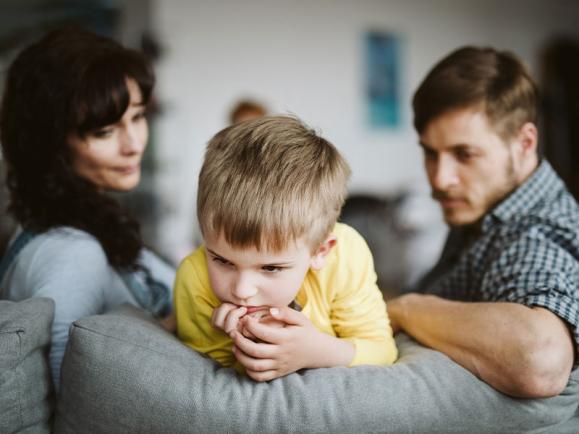
Parenting is not for the weak. It is a hard job that is oftentimes thankless and exhausting. There are millions of self-help books on the topic, but there isn’t one for-sure way to check all of the boxes and get it right. With that said, there are some ways you can for sure mess up your kids. These bad habits and negative phrases will definitely impact your child and potentially create trauma.
Here are the seven things to avoid doing and saying.
1. Lying
Now, we’re not talking about Santa Claus and the Tooth Fairy – even though those will one day be uncomfortable conversations. We are discussing lies pertaining to life events and other general things. Children are way smarter than adults give them credit for; therefore, trying to shield them from hurt will only hinder their maturity and coping skills. If a pet dies, use the passing as an opportunity to discuss your child’s emotions and feelings, and discuss the circle of life. If a hard news topic comes up, facilitate an honest conversation, and provide the facts. There is a way, to be honest without being scary.
Conversations will look different depending on your child’s age, but it is important to always be honest and not create holes by lying. Having difficult conversations with your children is part of parenting.
2. Not Leaving Room For Mistakes
Mistakes are opportunities to be better and learn. Mistakes are not deal breakers or brick walls for dreams. Give your child room to make errors and help them learn the best course of action to improve. If you choose to be a helicopter parent, your child will never learn the feelings of rejection and failure; therefore, they’ll have issues coping later in life.
Always reinforce your child with positivity but make space by letting them spread their wings. A child will never appreciate a win if they don’t know what it feels like to lose.
3. Parenting One Way
If you have multiple children, you must be willing to switch up your parenting style and adapt things for every child. Each child is unique and requires a different method of nurturing, discipline, and reaffirmation. If you’re not willing to divert what worked for one child, then you’ll have problems in the future with your other child(ren).
This is a key reason why there are millions of parenting books on the market because every individual is unique.
4. Unlimited Screen Time
Screen time is not just video games and TV. It also includes the phone, tablet, and computer time. Allowing your child to have unlimited access to screens will create bad habits and lower their self-esteem and self-awareness. Other proven negative effects include sleep deprivation, obesity, vision problems, aches and pains, loss of social skills, and aggression.
Limit your child’s screen time and install parental controls onto their devices to prevent bad people from reaching them and restrict the inappropriate content from their access. Being proactive when it comes to screen time is a must. Unfortunately, if you are reactive, there will most likely be a bigger battle between you and your child.
5. Not Enforcing Healthy Food Options
We live in a world where junk food and fast-food commercials are marketed in between our children’s programming – making those food options seem delicious and a must-have. However, it is important to educate your children on healthy food options. Take the time to research with your child so they feel included and are less argumentative. Be willing to explain what additives and preservatives are and how organic choices can affect our bodies in the long-term.
6. Trying to Be Your Child’s BFF
Your child doesn’t need another friend. They need you to be their parent. So, yes, most of the time, you’re going to feel like the bad guy because your child isn’t going to always agree or like what you say. However, you are responsible for creating structure and reinforcement for your child.
If you try to be your child’s friend, they will not respect the boundaries and rules you enforce as the authoritative figure.
7. Getting Upset When Your Child Expresses Their Feelings
This one is a lot easier said than done. Sometimes parents will get caught up in the moment and react to their child’s less than great behavior. It is important for parents to fully understand that they cannot control their child’s feelings and emotions. In fact, parents should allow their child to feel their feelings – otherwise, their children will never really know how to react to basic day-to-day events.
Take a step back and give your children space to express their emotions. Obviously, if things get out of control, then you respond by explaining why their behavior is unacceptable. Give your child the time and space to evaluate everything and create a response.
Go easy on yourself. Parenting isn’t for the weak-minded and isn’t glamorous. Most days, you’ll question if you approached a situation the right way, you’ll worry if you were enough for your child at the moment, and you will be frustrated when things don’t pan out the way you visioned. In a nutshell, that is parenting. It often feels like a circus act of trial and error, but the investment of your time and energy will pay off.

